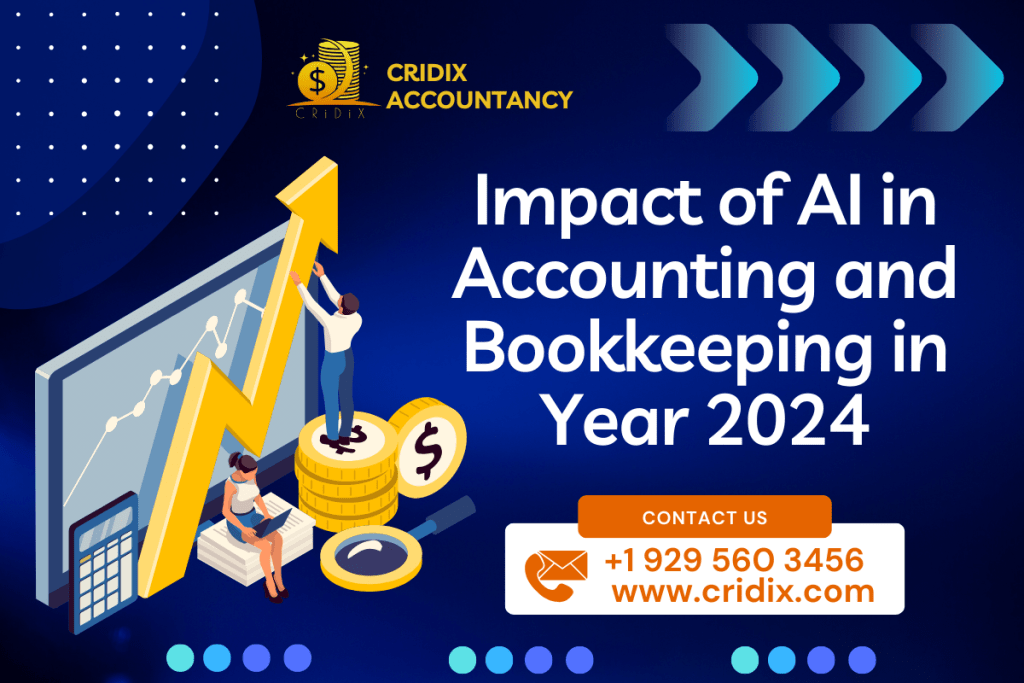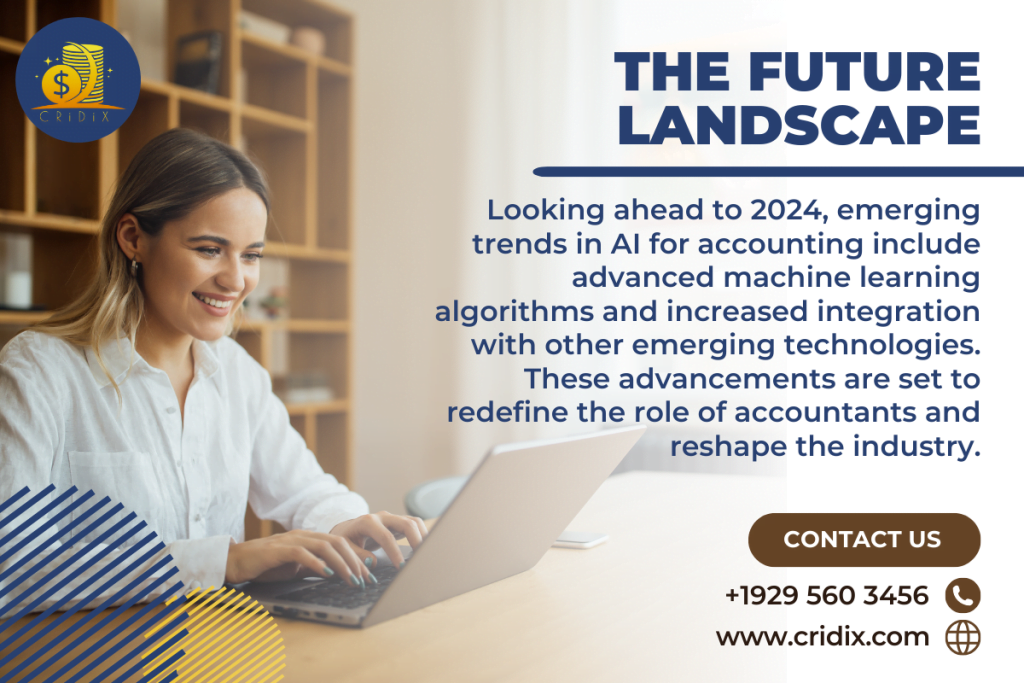
Introduction
In this article, we will discuss about Impact of AI in Accounting and Bookkeeping. The financial landscape has undergone a radical transformation by integrating Artificial Intelligence (AI) into accounting and bookkeeping practices. In the year 2025, the impact of AI on these crucial aspects of business management is more pronounced than ever.
AI Applications in Accounting
Automation takes center stage, relieving accountants from mundane tasks and allowing them to focus on strategic decision-making. AI algorithms also play a pivotal role in fraud detection and risk management, ensuring the integrity of financial data—moreover, the enhanced accuracy achieved through AI aids in producing reliable financial reports.
Integration of AI in Bookkeeping
The traditional complexities of data entry are simplified with AI-driven solutions, leading to streamlined processes. Real-time financial analysis becomes a reality, empowering businesses with instant insights. Predictive analytics further improves decision-making, offering a competitive edge in the dynamic market. Cridix is well-versed in integrating AI tools with cloud-based bookkeeping tools. You can enjoy our Bookkeeping service at a low cost.
Benefits of AI in Accounting and Bookkeeping
The Impact of AI in Accounting and Bookkeeping offers multifaceted advantages. Chief among them is the significant boost in efficiency and time savings, as AI expedites tasks that would traditionally take hours. Simultaneously, the reduction in errors ensures the integrity of financial records, and the cost-effectiveness of AI solutions benefits businesses of all sizes. In essence, AI transforms financial management by streamlining operations, enhancing accuracy, and democratizing access to advanced technology.
Challenges and Concerns
Yet, the integration Impact of AI in Accounting and Bookkeeping presents challenges. Paramount among these are concerns about data security and privacy, resistance to technological change, and apprehensions regarding potential job displacement. Addressing these hurdles requires careful consideration and strategic approaches to ensure a seamless transition to AI-driven accounting practices.
The Future Landscape
Peering into the future of 2025, anticipated trends in AI for accounting encompass advanced machine learning algorithms and heightened integration with other emerging technologies. These developments are poised to revolutionize the role of accountants and fundamentally reshape the entire industry landscape.

Also Read: 8 Best Ways to Manage Small Business Financial Management
Case Studies
Real-world success stories vividly demonstrate the transformative impact of AI in accounting firms. Through these case studies, it becomes evident how the adoption of AI technologies enhances financial processes, amplifies efficiency, and elevates client satisfaction to new heights.
Industry Perspectives
Experts in the field provide valuable insights into the role of AI in accounting. Their opinions shed light on the ongoing evolution of technology and its impact on traditional accounting practices.
Preparing for the AI-Driven Future
Adapting to the evolving landscape necessitates accountants to cultivate new skill sets. Crucially, training and education initiatives become imperative for professionals to meet the shifting demands of the industry successfully.
Regulatory Considerations
With AI becoming integral to financial processes, businesses must prioritize navigating compliance challenges and adhering to government regulations. These considerations are vital for ensuring seamless integration and regulatory adherence in the AI-driven financial landscape.
The Human Touch in Accounting
In the dynamic realm of finance, where Artificial Intelligence (AI) takes center stage, businesses face the crucial task of navigating compliance challenges and adhering to government regulations. As AI becomes intrinsic to financial processes, businesses need to ensure a seamless integration that complies with evolving legal frameworks. This strategic approach not only mitigates compliance risks but also establishes a foundation for responsible AI implementation, fostering sustainable growth in the financial landscape.
Addressing Ethical Concerns
Incorporating ethical considerations into the use of AI in accounting practices is of utmost importance. It is incumbent upon professionals and businesses to embrace responsible AI practices, thereby upholding the highest ethical standards in their operations.
AI Tools for Small Businesses
Small and medium-sized enterprises (SMEs) can harness the advantages of AI tools as well. Cost-effective solutions specifically designed for small businesses play a pivotal role in enhancing accounting practices within this sector.
Key Takeaways to Impact of AI in Accounting and Bookkeeping
In summary, the impact of AI in accounting and bookkeeping in 2025 is transformative. The industry is witnessing a paradigm shift, and professionals need to adapt to stay relevant. The journey forward involves embracing technology responsibly, upskilling, and maintaining a human-centric approach.
Conclusion
As we navigate the AI-driven future of accounting and bookkeeping, the key lies in embracing change and leveraging technology for strategic advantage. The fusion of human expertise with AI capabilities creates a powerful synergy that propels the financial industry into a new era of efficiency and innovation.

